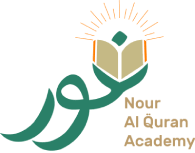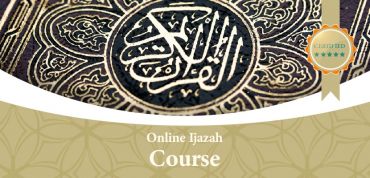
Helool
Learning Arabic is a little hard for non-Arabs, needless to say, learning how to read the Holy Quran in Arabic is even harder. Experts have developed a method to make it much easier to learn the Holy Quran language, this method is called “Noorani Qaida”.
What is Noorani Qaida?
Noorani Qaida is like when two roads meet and become just one road. It's one way to learn Arabic and the Holy Quran at the same time. Noorani Qaida's method based on learning how to pronounce letters and how to connect these letters to spell a whole word. You get to learn how to read according to sentences quoted from the Holy Quran, that way you govern reading the Holy Quran on your own. It's an efficient method that saves both your time and your effort because sometimes reading the Holy Quran is a little bit difficult for Arabs themselves due to all the stressing signs, the different Hamza rules, the silent and pronounced Alif, and the diacritics.
Learning Noorani Qaida is especially helpful for kids and non-Arab adults. Do you want to start learning Quran now? Register & Get Free Trials
Why should you learn Noorani Qaida?
Reciting the Holy Quran becomes easier.
Reading and learning the Holy Quran is something that every Muslim should do. Abu Umamah (may Allah be pleased with him) narrated that the Prophet Muhammad (peace and blessings be upon him) said: "Recite the Qur'an, for it will come as an intercessor for its reciters on the Day of Resurrection." (Sahih Muslim).
If the Holy Quran guards you in the other life, you should guard it in this life by reading correctly and teaching others how to govern Quran recitation.
It includes important Tajweed rules.
Tajweed is the science that includes all the necessities for the protection of the tongue from mistakes and by highlighting the most common mistakes one may do while reciting the Holy Quran. It will help you to read the Holy Quran flawlessly. A'ishah (may Allah be pleased with her) narrated that the Prophet (peace and blessings be upon him) said: "One who is proficient in reciting the Qur'an is associated with the noble, pious (angel) scribes. As for he who stammers when reciting the Qur'an and find it difficult for him, he will be granted a double reward" (Al-Bukhari and Muslim)
It saves you time.
With Noorani Qaida, you won't have to take an Arabic language course before you learn the Holy Quran, you get to do both at once. Arabic is the language of the Holy Quran and reciting the Holy Quran in Arabic gives you a deeper understanding of the semantics, not just the context. 1:1 Live Quran Classes
What will you learn?
Separated Alphabets.
You will learn how to pronounce all the Arabic characters separated, which letters are bold, and which are light, according to how you should pronounce these letters while reading the Holy Quran.
Compound letters.
Compound letters in Arabic are called (Murakkabat), and this means that more than one letter has joined together to form a compound letter.
Movements or Harakat.
Letters in Arabic are complicated to spell in a certain context, that's why there's something called "Harakat" which teaches us when to read the same letter with "a, e, o" sounds added.
e.g.
" أَ " this is pronounced "a"
" أُ " this is "o"
" مَ " this is ma
" مِ " this is "me"
" مُ " this is "mo"
Nunnation or Tanween.
Nunnation is about different signs added to the end of words, mostly to adjectives and adverbs, and it's used to distinguish between them.
Sukoon or Jazm.
Sukoon is when you don't add movements, nunnation, or anything to the end of a word.
If you want to know more about Noorani Qaida, Contact Us. We highly recommend it to start learning the Holy Quran language. Your instructor will be an Arabic mother tongue who is certified to teach Arabic as a foreign language. Don't forget that Noorani Qaida is super easy for adults and kids, so bring your kids and start learning now!
What is Ijazah?
To hold an Ijazah is to have the authority to narrate and teach the Holy Quran, Hadith, and Islamic law. However, you can't have that license unless an Ijazah holder gives it to you. The succession of Ijazah (Sanad) holders goes back to the prophet Muhammad, as he taught his knowledge of the Islamic religion to his people and gave the authority to fully capable people of transmitting it to others. People who had this authority continued coaching others, and they made sure that they only grant the permission of spreading the Holy Quran to well-qualified people, and so the chain kept going until this day.
Abu Umamah narrated that the Prophet Muhammad said: "Recite the Qur'an, for it will come as an intercessor for its reciters on the Day of Resurrection." (Sahih Muslim)
Who can get certified\ licensed?
Holding the Ijazah is not monopolized for specific people, any Muslim can do it if all requirements are applied, so he has what it takes to teach others, and these requirements are:
- Being fully capable of reciting the Holy Quran without making any mistakes.
- Acquiring Tajweed skills and reciting the Holy Quran using it.
- Memorizing the Holy Quran and reciting it to and Ijazah holder without peeking.
Hint: Tajweed is the science of pronouncing the Arabic letters in the Holy Quran exactly as they are, without unnecessary stressing or toning. A'ishah (may Allah be pleased with her) narrated that the Prophet (peace and blessings be upon him) said: "One who is proficient in reciting the Qur'an is associated with the noble, pious (angel) scribes. As for he who stammers when reciting the Qur'an and find it difficult for him, he will be granted a double reward" (Sahih Al-Bukhari and Muslim).
How to be an Ijazah holder?
To be an Ijazah holder, you need to study Tajweed skills and be able to recite the Holy Quran flawlessly. You also need to be taught by an Ijazah holder as no one can give you this license unless they have the authorization to do so. If you ever consider this option, contact us, as our instructor is:
Ijazah Holder.
- Al-Azhar Graduate.
- 10 years of teaching experience.
- Uses an interactive way of teaching.
- Extremely friendly.
Ijazah course curriculum
- Reciting the Holy Quran with the famous Qira'at and Tajweed.
- Memorizing the Holy Quran (full or part).
- Getting tested on reciting skills.
- Getting tested on memorizing the Holy Quran.
Note that: You get the Ijazah for only the parts you memorize, you don't get a "Full Quran Ijazah" unless you memorize the whole Quran.
Learning the Holy Quran is a charming journey that is not only you get to enjoy, but also it makes you closer to Allah, and it raises your position among Muslims. Uthman ibn Affan (may Allah be pleased with him) narrated that the Prophet (peace and blessings be upon him) said: "The best among you [Muslims] are those who learn the Qur'an and teach it." (Sahih Al-Bukhari)
If you want to read more about the advantages of learning the Holy Quran, check our article "7 Benefits of learning and reading the Quran" and if you are interested in our course, contact us.
How to Read Quran like Professionals ?
As a Muslim, learning how to read the Holy Quran is a must. The Holy Quran is a book of wisdom and guidance. It's like the light Allah has sent for us to follow. In the Holy Quran, you find stories of our Muslim ancestors, the prophets, and the messengers of Allah. You get to learn from their experiences and their struggles. You also get to learn about Allah, his rules, and his words of wisdom. While reading the Holy Quran, you will find what makes peace pervades through your soul, that's why you shouldn't just be reading, you should be reciting the Holy Quran.
Reciting the Holy Quran raises your balance of good deeds, which leads you to the heaven. Our prophet Muhammad (blessings and peace be upon him) said: “Whoever recites a letter from the Book of Allah, he will receive one good deed, and the one good deed grants more ten good deeds like it. I do not say that alif-lam-meem is one letter, but rather alif is a letter, lam is a letter, and meem is a letter.” (Sahih At-Tirmidhi).
Click here to read about 7 benefits of learning the Holy Quran.
To read Quran is different than to recite
Reading means to look at the words and to spell them out, simple as we know, but the act of reciting is different; it is the art of completely being into what you're reading. To recite is about consciously reading every word and grasping the full meaning of each verse, then obey what it says as the Holy Quran is full of instructions that Allah asked us as Muslims to follow.
When Gabriel the archangel first went down to our prophet Muhammad, he narrated to him a verse of the Holy Quran sent from Allah; that verse was "Iqraa" which means recite, "Recite in the name of your Lord who created {1}" Surah Al-Alaq. This Ayah (verse) implied the meaning of recitation, which is, in a nutshell, reading and following Allah's lead in the way Allah has described in the Holy Quran, as Allah has described what is Halal (righteous to do) and what is Haram (forbidden because it’s somewhat harmful).
Allah said: “There shall be no compulsion in the religion. The right course has become clear from the wrong. So whoever disbelieves in Taghut and believes in Allah has grasped the most trustworthy handhold with no break in it. And Allah is Hearing and Knowing. {256}” Surah Al- Baqarah.
Qira'at
The word "Qira'at" means '"readings" and in our religion, Islam, it refers to the various recognized schools of the way we recite the Holy Quran, and there are ten of them, each one deriving its name from a noted Quran reciter or "reader" (Qari).
The differences between all the "Qira'at" are trivial, it's about differences in stops, vowels, and sometimes letters. The Quran that almost all the Muslim world use today is a 1924 Egyptian edition based on the Qira'at reading of Hafs (the Rawi, "transmitter").
Some rules of the "Qira'at" are applied to all like:
- Conformity to the consonantal skeleton of the Uthmānic codex.
- Consistency with Arabic grammar.
- Authentic chain of transmission (that goes back to the original reading of our prophet Muhammad).
So thank Allah that one of the most perfect qualities of the Holy Quran is that it's guarded by Allah from being changed or having its verses misread. Allah said: "Indeed, it is We who sent down the Qur'an and indeed, We will be its guardian. {9}" Surah Al-Hijr.
Learning Quran Tajweed Also Helps
Tajweed is that it's the science that includes all the necessities for the protection of the tongue from mistakes and by highlighting the most common mistakes one may do while reciting the Holy Quran, and it helps you (the learner) to avoid these mistakes whether they were clear or hidden. In this way, Tajweed will help you with any "Qira'a" you choose learning to recite with.
What will you learn in Tajweed?
You will understand Tajweed rules, which include (Permanent and temporary characteristics of the Arabic letters, articulation points of the letters, the relation between the letters, Al-Waqf (the Stop), and Al-Ibtidaa' (the start), joined and separate words, ...etc!)
What will you learn in Quran Reciting?
You will learn to recite the Holy Quran with one of the recognized "Qira'at" and that includes learning:
- Quranic Phonetics.
- Arabic letterforms and diacritic signs. Recitation Techniques.
- Recitation of Short and long Surahs.
Quran reciting is forever rewarding. A'ishah (may Allah be pleased with her) narrated that the Prophet (peace and blessings be upon him) said: "One who is proficient in reciting the Qur'an is associated with the noble, pious (angel) scribes. As for he who stammers when reciting the Qur'an and find it difficult for him, he will be granted a double reward" (Sahih Al-Bukhari and Muslim).
If you consider learning, contact us, our instructor is:
- Al Azhar University graduated.
- Certified to teach Arabic as a foreign language.
- Authorized to teach and give certifications of reciting and memorizing the Holy Quran.
- Has 10 years of experience!
Don't hesitate and Contact Us Now.
Everything you need to know about the Holy Quran Tajweed
The story has started with the expanse of Islam. A lot of non-Arabic speakers have believed in Allah and his messenger, Muhammad (peace and blessings be upon him). It was hard for non- Arabs to pronounce the Holy Quran's language correctly, and with this wave, even Arabs had their pronunciation mistakes.
Although the messenger of Allah, Muhammad, had tried hard to teach as many people as possible what he had learned from Jebreel (peace be upon him), the first person to write a book collecting the Holy Quran's recitation rules was Imam Ibn Al-Jazari and the book name is "Introduction into Tajweed Science." he even wrote two great poems collecting all the rules he had ever known. After that, Abu Ubaid Al Qassem made a great achievement of collecting what Ibn Al-Jazari did and all the other efforts in the field of (How to read the Holy Quran Correctly) in a book called "Qira'at book (the book of recitation)."
So, what is the Quran Tajweed?
You can assume from the previous paragraph that the word (Tajweed) means (Recitation), well, that is partially true. Tajweed is the science of pronouncing the Arabic letters in the Holy Quran exactly as they are, without unnecessary stressing or toning.
Imam ibn Al-Jazari's definition of Tajweed is that it's the science that includes all the necessities for the protection of the tongue from mistakes and by highlighting the most common mistakes one may do while reciting the Holy Quran.
In brief, to read the Holy Quran the perfect way, you need to study Quran Tajweed, especially if Arabic is not your mother tongue. Don't forget what the prophet Muhammad said: "Whenever a group of people assembles in one of the Houses of Allah (i.e. Mosques), reciting the Book of Allah and studying it, tranquility descends upon them, Mercy covers them, angels surround them and Allah makes a mention of them among those who are with Him." (Sahih Muslim)
Also, Allah said: "Or add to it, and recite the Qur'an with measured recitation. {4}" Surah Al- Muzzammil
What does the Quran Tajweed include?
We have agreed that Tajweed is about pronouncing the Arabic letters ideally, let's dig a little deeper. Tajweed rules include (Permanent and temporary characteristics of the Arabic letters, articulation points of the letters, the relation between the letters, Al-Waqf (the Stop), and Al- Ibtidaa' (the start), joined and separate words, ...etc!). So many rules had been made for us just to read the Holy Quran precisely, and as hard as it may sound, it gets easier when you start.
In a nutshell, Tajweed will help you avoid mistakes
As we said before, Tajweed will help you to recite the Holy Quran flawlessly. However, the scholars have divided the types of mistakes one might fall into when reciting the Quran into two:
-
Clear Mistakes: Pronouncing words in a way that leads to giving the word another meaning, like changing a short vowel (Harakah) into another (e.g. changing Fat-hah into Dhammah or the letter Qaaf into Kaaf, etc) and making a Madd letter which out of a normal Harakah.
-
Hidden Mistakes: Perfect recitation mistakes that are known only by those who have studied Tajweed rules or are experts in this field, like making light letters sound heavy and heavy letters sound light.
Learn Quran with Tajweed Online
However, what people don't know about Tajweed and recitation is that it has three levels and you can choose whatever you want to ace.
Levels of Recitation
Recitation the Holy Quran with Tajweed has three known levels:
-
At-Tahkqeeq: Perfect slow recitation with the practice of Tajweed rules, without elongation.
-
At-Tadweer: Moderate speed in recitation with the practice of Tajweed rules, without elongation nor merging the letters.
-
Al-Hadr: Quick recitation without merging the letters, ith the practice of Tajweed rules.
Some people prefer "At-Tahkqeeq" level as Allah said in Surah Muhammad: "Then do they not reflect upon the Qur'an, or are there locks upon [their] hearts? {24}" and the slowness in reading helps you fully digest what you're reading. However, others prefer "Al-Hadr" as the
Messenger of Allah said: "Whoever recites a letter from the Book of Allah, he will be credited with a good deed, and a good deed gets a ten-fold reward. I do not say that Alif-Lam-Mim is one letter, but Alif is a letter, Lam is a letter, and Mim is a letter." [Sahih At-Tirmidhi]
We prefer being in between, as Islam is the religion of moderation.
Always Remember that
A'ishah (may Allah be pleased with her) narrated that the Prophet (peace and blessings be upon him) said:
"One who is proficient in reciting the Qur'an is associated with the noble, pious (angel) scribes. As for he who stammers when reciting the Qur'an and find it difficult for him, he will be granted a double reward" (Sahih Al-Bukhari and Muslim)
Learn Quran and Tajweed today from a mother tongued 10 years experienced instructor, who's Al Azhar graduated and Ijazah holder. Sign Up Now and Get your Free Trial Session.






